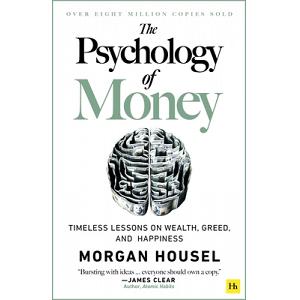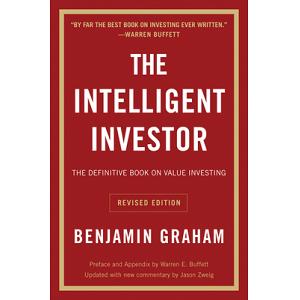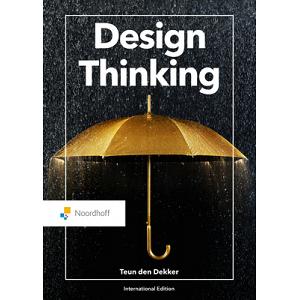There is two futures that we are
going to think about:
- 1. The things that you want to have happened. This includes everything from graduate school, going to college, buying a home and retiring some day.
- 2. Another future that we don’t want to have happen incudes things like getting sick, being unable to work for a meaningful amount of time.
In order to do this, families and individuals have to know and engage in prudent action in three main spears in financial resource management.
A Model of Financial
Security
The things that we can control:
- 1. Wealth accumulation
- 2. Cash and credit management
- 3. Risk management
The Things that we can not
control:
 |
| The Psychology of Money: Timeless Lessons on Wealth, Greed, and Happiness |
- 1. Economic environment for example whether markets are up, markets are down that's going to influence the types of choices that we make in our financial decisions and the choices that are available to us.
- 2. The other things to consider too, the lack of awareness for example not knowing what decisions to make, not knowing the details of different financial strategies can harm us.
- 3. Our preferences and needs, the concept Life Cycle Planning, and the simple idea is that as we get older, as our life situations changes, our preferences are going to change. The things we value, the things we want are all going to be different and the things we need are going to change, something like getting married, having kids, going to graduates school, getting a job, all of these types of life events are going to shape and influence the choices we make, and the choices we need to make when it comes to financial management.
Cash and Credit Management
We want to make sure that we have the right amount of money left over to preserve liquidity and that’s basically the idea that we need to have enough money on hand at any given time, to meet our ongoing obligations. Liquidity represents the amount of cash on hand, or available cash to us. We want to be efficient in our use of financial services. This means using the right mix of bank accounts, having the right insurance products, so that we have the protections and the services we need, but, we are not paying to much for it. And then we also want to think about things like prudent tax planning, keeping as much of our money as we legally are entitled to do.
The concept related to cash and
credit management:
- 1. Taxes – deduction, exemptions and other things that have to learn.
- 2. Household record keeping, keeping track of the money going in and the money going out. The things we owe and the things we own, our net worth, we use that records to estimate our financial position. Where we are, thinking about our strengths, our weaknesses, our opportunities that we have, and the threats that we are facing.
- 3. Cash flows, saving and investing works for us and borrowing work against us. We are understand that because when you take on debt, it’s going to reduce, you are going to pay it back.
- 4. Credit and borrowing, borrowing is the idea that I am taking money from the future and spending it today.
- 5. Credit reports and scores, will be used to track and to categorize us in terms of whether or not service providers want to work with us, even whether or not employers want to hire us.
Building wealth
Borrowing is the idea that I am
taking money from the future and spending it today. Building wealth is the
opposite, taking money today and pushing it out to the future. We allocate our
current resources to future consumption. That what basically define as savings,
taking money I could spend today and saying I am not going to, I am going to
put that aside for later.
- 1. This is the product of changing economic environm
Design Thinking ent. Changing preferences and needs, for the last several decades, we have seen a major shift from companies and agencies helping to support people during retirement through defined benefit pensions to moving over to defined contribution plans. - 2. So the idea that we are now responsible for our own. Long term stability, the other is that we call smoothing consumption, so the idea and a simple way to think about this, maintaining a lifestyle. We want to maintain the level of living. And this is because our resources, are going to change overtime. For example, someone may take off time for maternity, they may go back to school, they may change jobs and need transitions period. They might even think about retirement, there’s a whole host of things when our overall resources will shift or change, even when we are planning for it. And that idea of savings is something that will smooth that path for us.
- 3. In addition to those issues, think about the goals that we have, and we are going to spend time on that, thinking about the many common goals that many of us deal with. Achieving basic financial goals, buying a home, funding education for children or yourselves, these types of things are all expensive tickets, but if we plan ahead, if we put money aside towards those goals starting now, then when the time come for it, we are a lot more prepared to take on that responsibility. We may not be paying cash for a home, but we’ll have a nice down payment available. To really kind of help reduce us and get us started.
- 4. In addition, we want to think about having something for a rainy day and that’s what we often call the term is an emergency fund. We want to think about one of the important ideas is we need to make sure that when these shocks come up. Car breaks down, someone get sicks, that we have some resources on hand that we can use, to meet that immediate need. Not something we planned for, but something we’ve got, have to anticipate nonetheless.
 |
| Smart Women Finish Rich, Expanded and Updated |
Investing your money – the money that we will not need for spending today should be invested, using things like gold, real estate, and any other things that suitable for us. Before we start investing, we begin by knowing and having a plan and that begin by saying where do I wanna be. Goal setting, most goals can be formulated as objective statements, and one of the first things is creating the financial obejctive statement. Financial objective statements can always address some simple things like what is it? When do we need it? How much is it going to cost? We think of these as smart goals, right? Specifics, measurable, adaptable, realistic, and time bound. Financial objective statements always incude things like a time horizon, when do i need the money, and a dollar amount. Having that type of understanding of what we need and when, allows us to back out, what do i need to do today to get there? It help us to understand what the path to that goal and our financial security has to look like. So, starting with what are your goals, what are your situations? What is you want to happen, and come up with your own objective statements.
Risk management
So we need to protect all of our
resources, protect your income, protect your wealth and protect you. To make
sure that we leave something for those that were dependent on our income, and
making sure that we are taking sound care of our body and minds.
 |
| The Intelligent Investor REV Ed.: The Definitive Book on Value Investing |
A strategy that meets all of
those issues, understand and respectful of what’s happening in economy and make
sure that we are connected to the right types of resources and services. Can
certainly help us get forward on the path to financial security.

- 1. Strategies to help you reach your goals.
- 2. Implementation protocols, what types of account do i need? What services? How should I invest my money?
- 3. Flexible and evolve over time, And the most important thing to know about any good financial plan it’s get to be flexible, and it’s absolutely get to evolve over time. Remember, the life cycle stages will affect our financial management choices, and the choices that we even have to make, let alone want to make.


2 comments:
https://mycollection.shop/sixthreepark
https://mycollection.shop/sixthreepark
Post a Comment